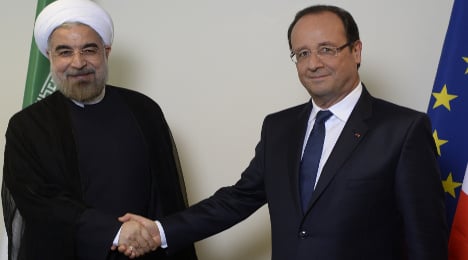The 116-strong French delegation, with representatives from major companies like Total, Lafarge and Peugeot, was the largest of its kind from Europe since a landmark nuclear deal reached with the major powers in November gave Iran limited relief from crippling US and EU sanctions.
French employers' union vice president Thierry Courtaigne said the delegation, which arrived in Tehran Monday, wanted to assess the commercial opportunities opened up by the easing of Western sanctions.
But a senior US official said Secretary of State John Kerry had telephoned his French counterpart Laurent Fabius to tell him that the visit – while from the private sector – was "not helpful" in sending the message that "it is not business as usual" with Iran.
Testifying before sceptical lawmakers, US Under Secretary of State for Political Affairs Wendy Sherman said Washington was warning the growing number of business delegations heading to Iran that sweeping sanctions remained in place.
"Tehran is not open for business because our sanctions relief is quite temporary, quite limited and quite targeted," said Sherman, who is overseeing the administration's cautious efforts to seal a diplomatic solution to the decade-old nuclear standoff with Iran.
"It doesn't matter whether the countries are friend or foe – if they evade our sanctions, we will sanction them," she told the Senate Foreign Relations Committee.
Just last month, the US Treasury announced that Luxembourg financial clearing house Clearstream Banking had agreed to pay the United States $152 million to settle accusations it illegally helped Iran's central bank access the US financial system in 2007 and 2008 in violation of US sanctions.



 Please whitelist us to continue reading.
Please whitelist us to continue reading.
Member comments